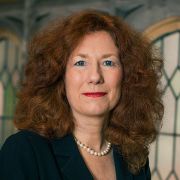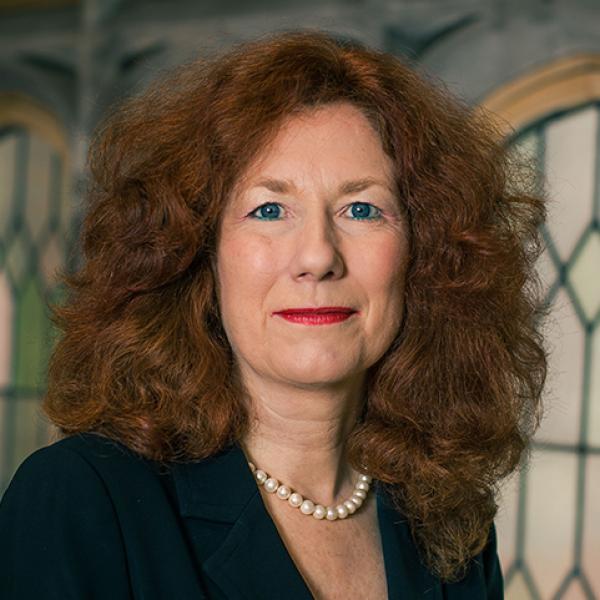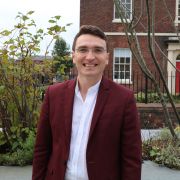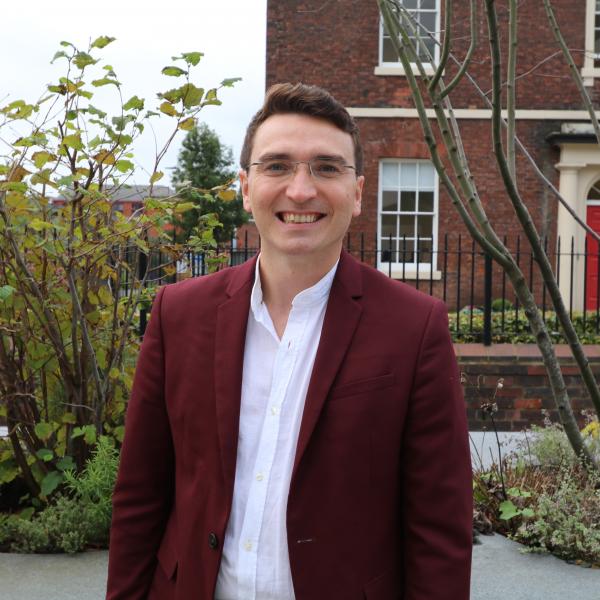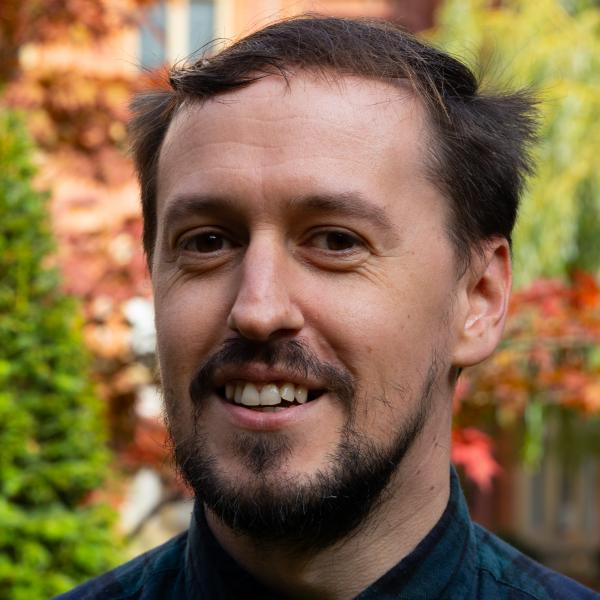Fact or fiction: how a world of misinformation can be challenged through philosophy
In a world of misinformation and fake news it can be challenging to discern fact from fiction. But by introducing philosophical education into the curriculum from a young age, children could be armed with the tools to do just that.

Between 2014 and 2016, Professor Angie Hobbs joined the fight to save a critical part of the education system. An A Level, that Angie felt was fundamental to the mental agility and resilience of young people, was being slashed from the curriculum. It was the A-level in Philosophy. But that fight was a successful one. Today, the A Level is firmly rooted into the national curriculum ÔÇô and she and her colleague, Dr Josh Forstenzer, have shown exactly why it should be.
Philosophy as a subject has been around in the West since the ancient Greeks, in the 6th century BC. Since then philosophers have regularly played a societal role as educators, critics and imaginative visionaries. TheyÔÇÖve brought us some of the most fundamental questions about how we should live, and in turn, some of the most striking answers.
The subject teaches ÔÇô amongst many other things ÔÇô critical thinking skills. By studying it, children learn how to think well and ask good questions, how to form and analyse arguments and how to interpret data and concepts before forming their own considered opinions. In a time where misinformation is a growing global phenomenon, these skills are vital to navigate the world we live in. Despite this, from primary to university level education, the resources offered by philosophy have been greatly under-used in the British (and particularly the English) education system.
Either by accident or by design, social media and the internet have created the ideal conditions for ÔÇÿfake newsÔÇÖ, ÔÇÿalternative factsÔÇÖ and an unhealthy stew of lies that can permeate through the fabric of society. ÔÇ£The misinformation and lies generated by the combination of the internet, social media and public leaders have made it very difficult for democracies to function in a healthy way. ItÔÇÖs allowed deeply damaging conspiracy theories to infect societies creating false enemies and deepening divisions,ÔÇØ says Angie.
Genuine democratic choices can only be based on accurate information and well-understood reasons.
Professor Angie Hobbs
In a study published by the , when presented with five factual statements and five opinion statements, only 20 per cent of those over 50 years of age correctly categorized all statements. This is compared to 32 per cent of those 18-49. This shows the fallibility of people of all ages towards believing fake news and cements the need to introduce philosophy early into schools to prevent future generations having the same problem.
Angie is part of a team of two researchers from the Department of Philosophy at 91╠¢╗¿ who are making a powerful case for philosophy to be taught to young people. The other half of that team is Josh. Despite both being well versed in philosophy, Angie and JoshÔÇÖs backgrounds cover different philosophical traditions.
For Josh, his interest in the promise of philosophical education stems from his work in American pragmatism and democratic theory. ÔÇ£For me, democracy is more than a set of institutions, itÔÇÖs a culture and way of life that is expressed and embodied in the way actual citizens relate to one another. Democracy is at its best when people engage with one another to solve problems they have in common and draw on the best available resources both intellectually and morally to address them. Philosophical education and conversation can help with this,ÔÇØ says Josh. Pressing democratic questions for Josh include what makes a good citizen, what virtues should education aim to foster and how we can foster the conditions needed for open dialogue across lines of enduring difference.
By contrast, AngieÔÇÖs work is rooted much earlier in the work of Ancient Greek philosophers such as Socrates, Plato and Aristotle, and their explorations of human nature and how best to live a good life. Despite AngieÔÇÖs and JoshÔÇÖs different areas of expertise, their work in philosophy can be united under a common idea ÔÇô education for the sake of flourishing.
ÔÇ£When we talk about flourishing in a philosophical sense weÔÇÖre talking about living a full and rich life, in which our potential ÔÇô intellectual, creative, emotional and physical ÔÇô is fulfilled,ÔÇØ explains Angie. This can apply to both the individual and to society as a whole. But the really important question here is how the two connect ÔÇô in what kind of society can individuals flourish and what do individuals need to do to help their communities thrive? What JoshÔÇÖs work on democratic theory and AngieÔÇÖs work on Greek philosophers have in common is that, for both, philosophy is not just something that we do with our mind, it affects our whole way of living.
ÔÇ£In both AngieÔÇÖs Ancient Greek context and my approach to philosophy known as the pragmatist tradition, we find a commitment to the idea that individual and collective flourishing are mutually interdependent and that a rich philosophical education can help both,ÔÇØ explains Josh. By applying the philosophical ideas from both contexts to education, Angie and Josh are exploring how this prepares children and young people for flourishing lives as democratic citizens in a world of misinformation and oversimplification.
This preparation doesnÔÇÖt only involve the development of critical thinking skills, it also fosters key social virtues. ÔÇ£On-going studies are showing that greater philosophy provision leads to positive traits such as appropriate intellectual confidence, open-mindedness, tolerance and a willingness to listen to the views of others,ÔÇØ says Angie. In one study, conducted in part by Josh, as many as 69 per cent of student participants reported an increase in their confidence in explaining their ideas to others and more than half reported an increase in their tendency to try to understand other peopleÔÇÖs perspectives.
By building strongly on their research, Josh and Angie have worked hard to improve the provision of philosophy education both inside and outside the classroom. TheyÔÇÖve helped to redevelop the A Level syllabus, organised philosophical conferences with young people, supported the development of the philosophy certificate for GCSE-level pupils, and continue to create online resources for staff and students. They even worked on Channel 4ÔÇÖs Child Genius and it doesnÔÇÖt stop there. Angie is a Patron of , which has and she is a regular guest speaker in podcasts, radio and TV shows (see links below). Josh is also one of the founding members of , an organisation dedicated to bolstering philosophical activities in 91╠¢╗¿ and its surrounding region.
By demonstrating the value of philosophical inquiry and reflection in education, AngieÔÇÖs and JoshÔÇÖs work advocates for a richer provision of philosophy both inside and outside of the curriculum. But philosophy provisions in schools canÔÇÖt be increased without both people to teach it and a political and civic climate that welcomes it. Therefore, their work extends to drawing on philosophy to analyse and recommend changes to education policy more generally. ÔÇ£The full significance of flourishing in education is found in thinking about education policy as well as curriculum design and teaching practices,ÔÇØ says Josh.
As the Vice-ChancellorÔÇÖs Fellow for the Public Benefit of Higher Education, Josh engaged with student leaders, the National Union of Students, Parliamentarians and Higher Education sector bodies to argue that the Teaching Excellence Framework ÔÇô supposedly designed to recognise and encourage excellent teaching in universities and colleges ÔÇô was flawed. It fails to recognise the value of learning for its own sake and of learning for the sake of improving society. Instead it prefers to celebrate learning purely for the sake of obtaining employment and securing future personal financial reward.
There is nothing wrong with education that helps people obtain good employment opportunities, but there is something wrong with thinking that this is the only or the highest purpose of education. Developing curiosity, discernment, and social responsibility are also fundamentally important parts of a good education."
Dr Joshua Forstenzer
ThereÔÇÖs no denying the prevalence of misinformation, ÔÇÿalternative factsÔÇÖ and ÔÇÿfake newsÔÇÖ, so itÔÇÖs fundamental that those growing up and living in the midst of this are equipped with the skills and attributes required to cut through the confusion. Philosophical ideas and skills are the cornerstones of critical thinking and problem-solving capabilities. Without them society wouldnÔÇÖt function. AngieÔÇÖs involvement in saving the philosophy A Level, and her and JoshÔÇÖs theoretical and practical work has done a lot to unlock the resources of philosophy in all three tiers of education. In doing so they are ensuring people have the cognitive and emotional skills they need to flourish. A society that flourishes leads to a future of good thinkers, responsible leaders and people trying to protect and improve the common good, which are all crucial foundations for a secure and healthy democracy.
Written by Alicia Shephard, Research Marketing and Content Coordinator
Graphics by Ella Marke, Visual Designer



